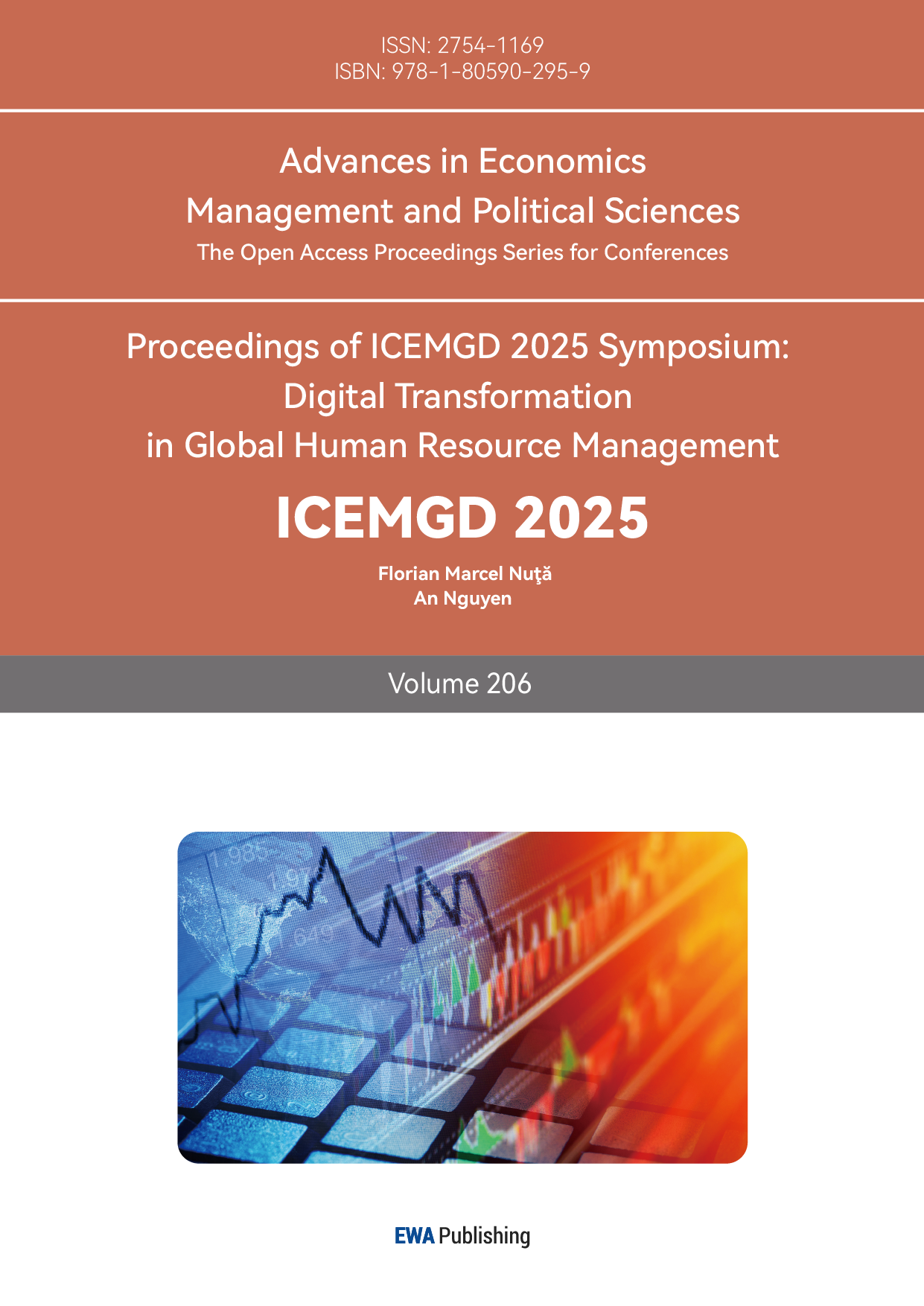References
[1]. Huang Songbing, Xie Xiaojun, Zhou Huifen. The "Isomorphic" Behavior of Corporate Greenwashing [J]. China Population, Resources and Environment, 2020, 30(11): 139-150.
[2]. Zhang D. Green financial system regulation shock and greenwashing behaviors: Evidence from Chinese firms [J]. Energy Economics, 2022, 111: 106064.
[3]. Huang Songbing, Chu Fang. Does Third-Party Verification Help to Suppress Corporate "Greenwashing"? [J]. Chinese Certified Public Accountants, 2021, (08): 38-42. DOI: 10.16292/j.cnki.issn1009-6345.2021.08.009.
[4]. Cao J, Faff R, He J, et al. Who's greenwashing via the media and what are the consequences? Evidence from China [J]. Abacus, 2022, 58(4): 759-786.
[5]. Lee M T, Raschke R L. Stakeholder legitimacy in firm greening and financial performance: What about greenwashing temptations? ☆ [J]. Journal of Business Research, 2023, 155: 113393.
[6]. Zhang D. Can environmental monitoring power transition curb corporate greenwashing behavior? [J]. Journal of Economic Behavior & Organization, 2023, 212: 199-218.
[7]. He L, Gan S, Zhong T. The impact of green credit policy on firms’ green strategy choices: green innovation or green-washing? [J]. Environmental Science and Pollution Research, 2022, 29(48): 73307-73325.
[8]. Ruiz-Blanco S, Romero S, Fernandez-Feijoo B. Green, blue or black, but washing–What company characteristics determine greenwashing? [J]. Environment, Development and Sustainability, 2022, 24(3): 4024-4045.
[9]. Xie Y, Qin J, Jin Z, et al. VAT Neutrality and Corporate Cash Holdings—Based on the Research of Uncredited VAT Refund Policy [J]. China Finance and Economic Review, 2023, 12(2): 49-71.
[10]. Yue Shumin, Xiao Chunming. Can VAT carry-forward tax refunds alleviate enterprises' financing constraints? - Empirical evidence based on cash-cash flow sensitivity [J]. Finance and Trade Economics, 2023, 44(01): 51-67. DOI: 10.19795/j.cnki.cn11-1166/f.2023.01.003.
[11]. Zhang D. Are firms motivated to greenwash by financial constraints? Evidence from global firms' data [J]. Journal of international financial management & accounting, 2022, 33(3): 459-479.
[12]. Wang H, Yang J, Zhu N. Does Tax Incentives Matter to Enterprises’ Green Technology Innovation? The Mediating Role on R&D Investment [J]. Sustainability, 2024, 16(14): 5902.
[13]. Zhang Ming, Jiang Ou Chen, Cai Zhiqiang. Value-added Tax Carryforward Tax Rebate Policy and Enterprise Green Innovation [J]. Accounting and Finance Monthly, 2025, 46(08): 52-61. DOI: 10.19641/j.cnki.42-1290/f.2025.08.008.
[14]. Cai Weixian, Shen Xiaoyuan, Li Bingcai, et al. The Innovative Incentive Effect of VAT Carryforward Tax Rebate Policy [J]. Finance Research, 2022, (05): 31-48. DOI: 10.19477/j.cnki.11-1077/f.2022.05.005.
[15]. Li Yifei. VAT Carryforward Tax Rebate and Enterprise Human Capital Upgrading [J]. World Economy, 2023, 46(12): 115-140. DOI: 10.19985/j.cnki.cassjwe.2023.12.007.
[16]. Liu Bai, Wang Xinzhu. The "Risk Compensation" Effect of Enterprise Green Innovation on Stock Returns [J]. Economic Management, 2021, 43(07): 136-157. DOI: 10.19616/j.cnki.bmj.2021.07.009.
[17]. Ma Y, Feng G F, Yin Z, et al. ESG disclosures, green innovation, and greenwashing: All for sustainable development? [J]. Sustainable Development, 2025, 33(2): 1797-1815.



